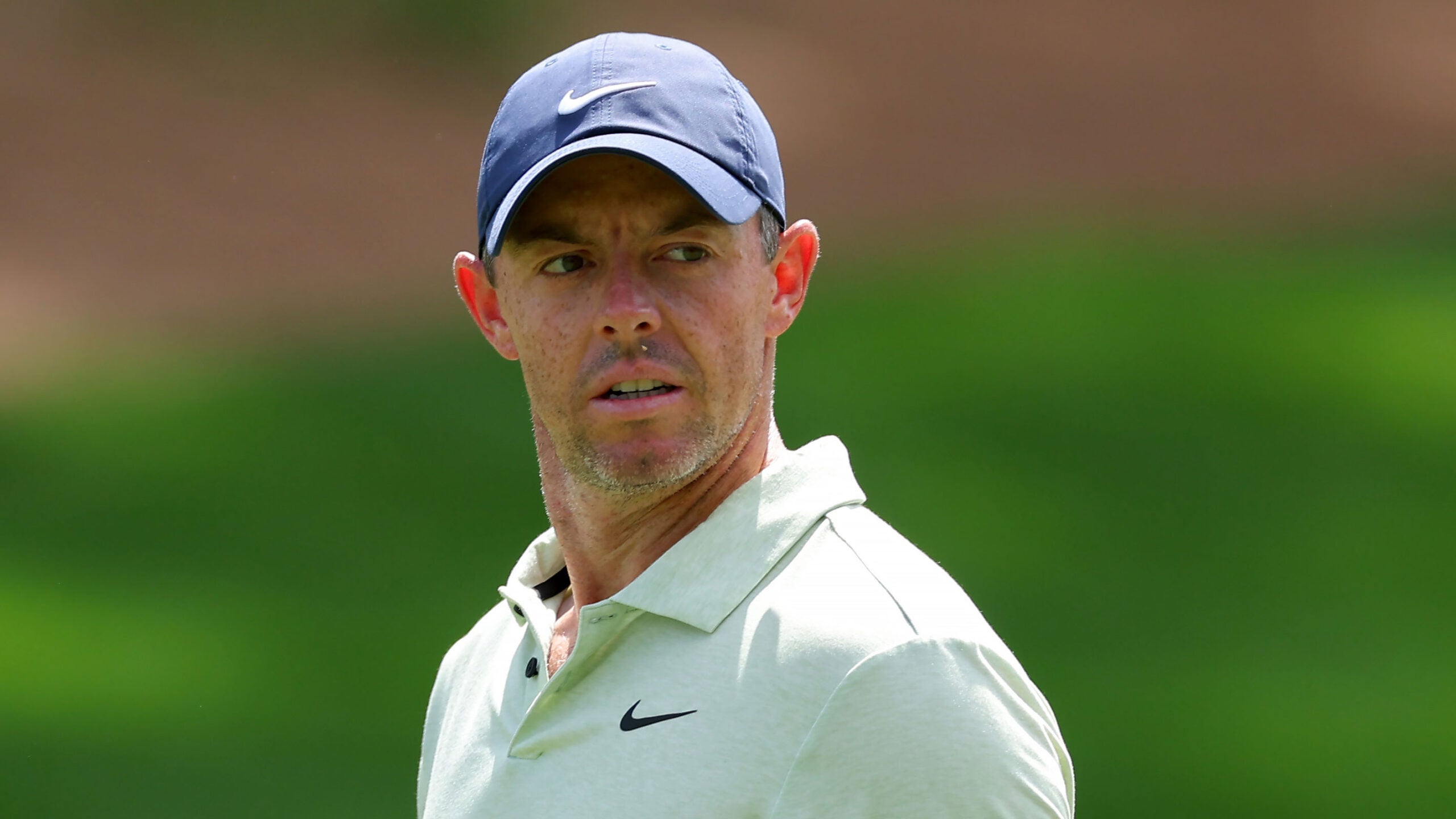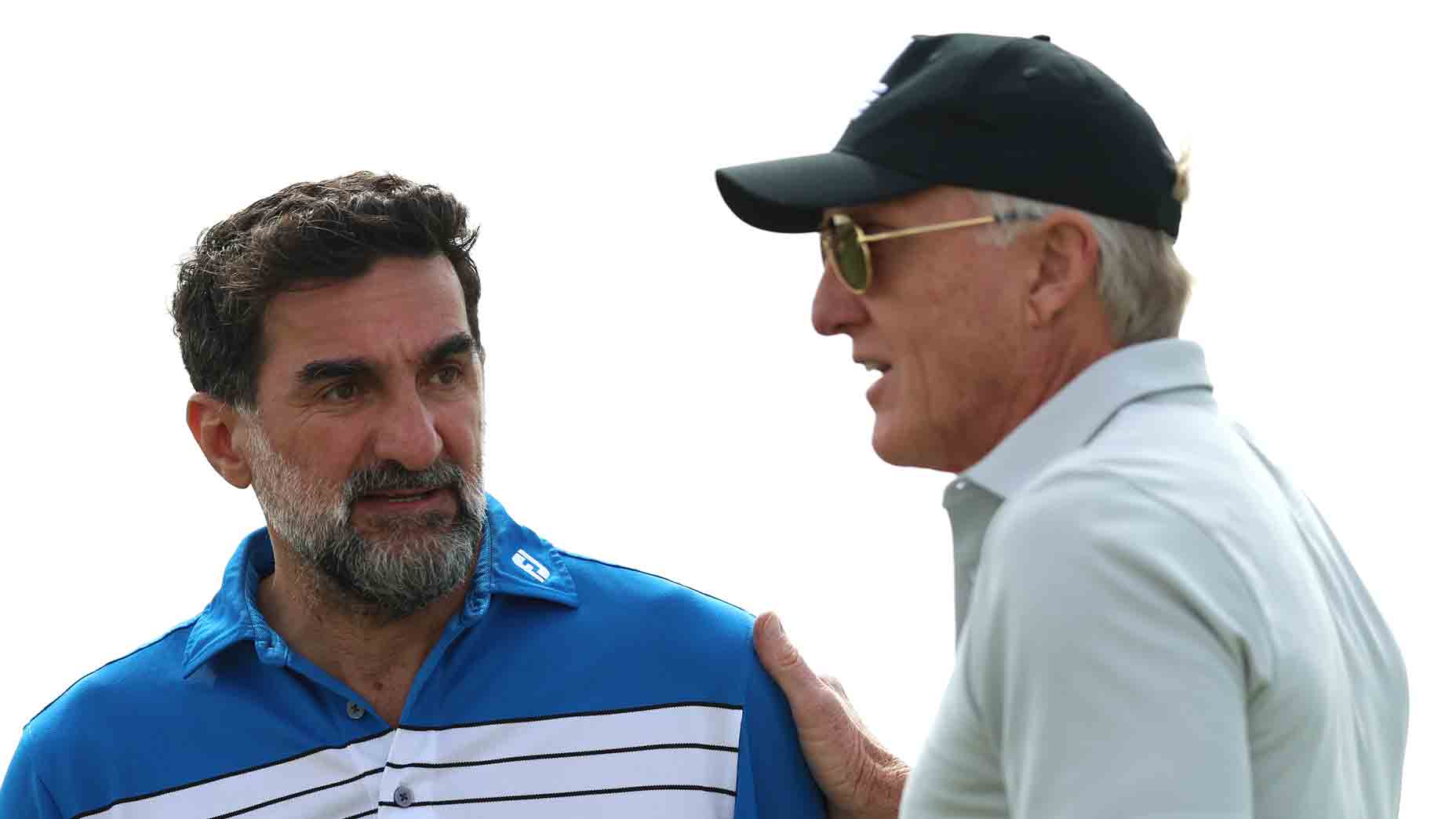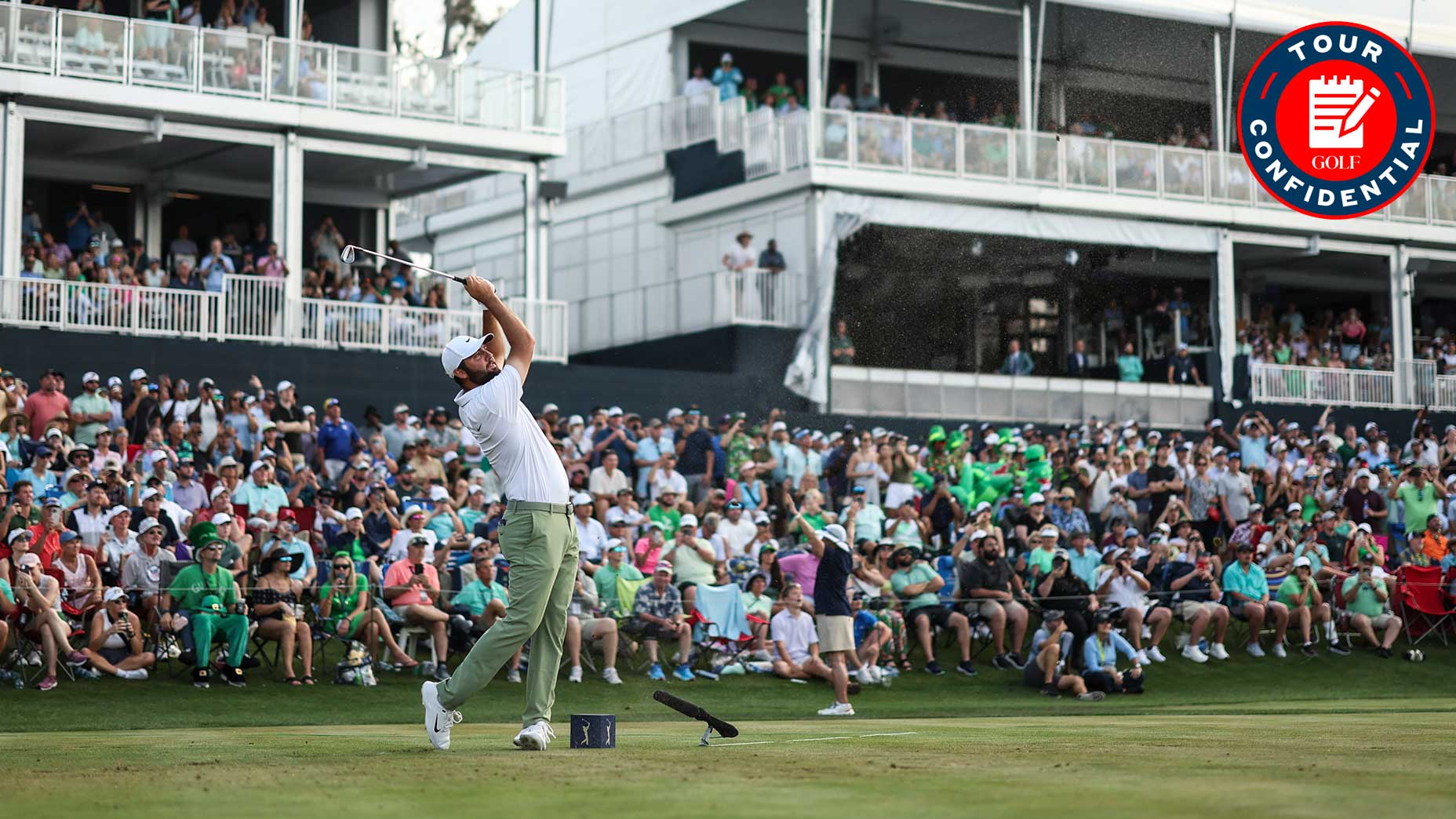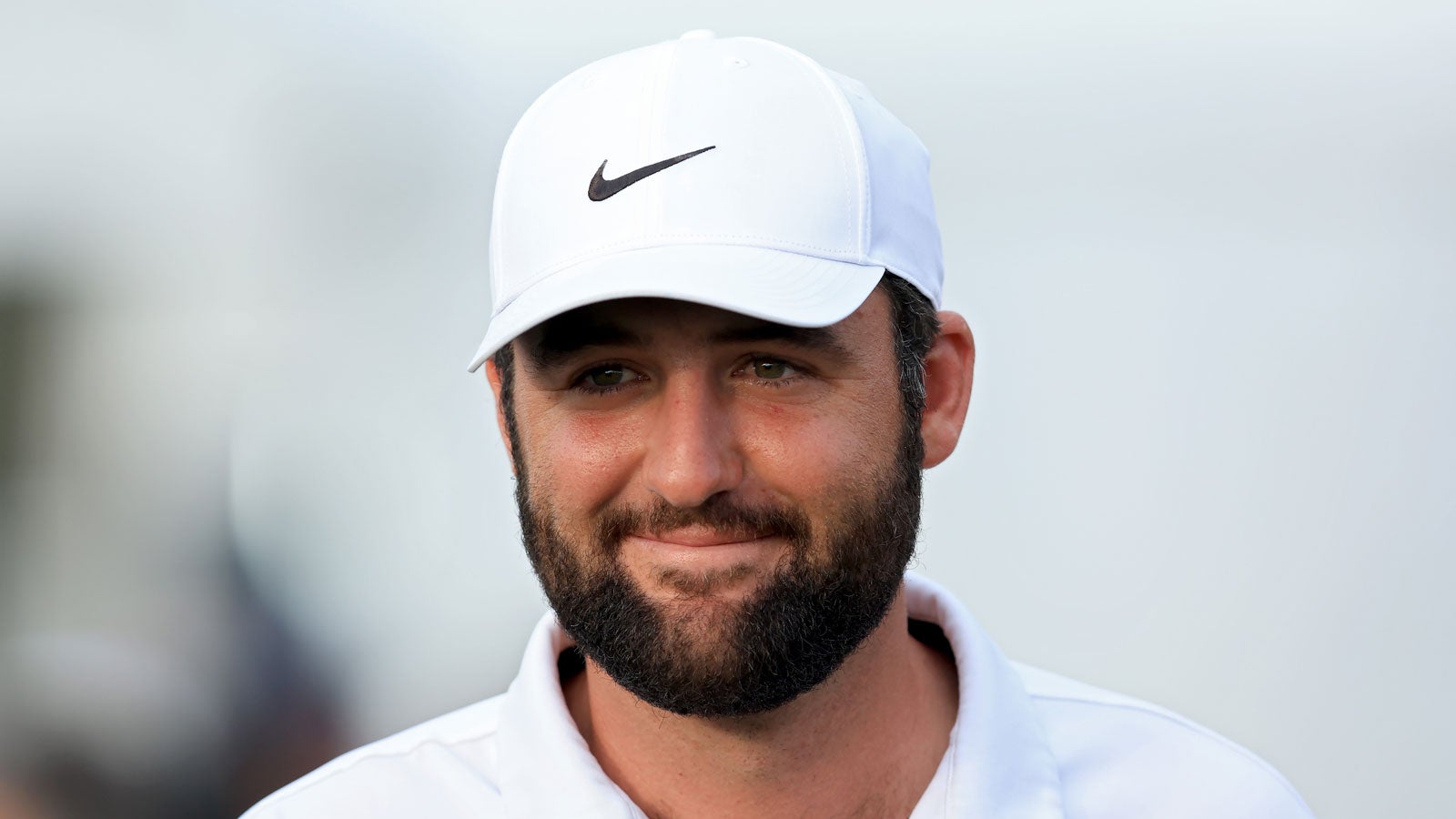
Rory McIlroy at the Players Championship on Sunday.
getty images
If you’re a rabid golf fan who doesn’t pay much attention to global economics, you’d be forgiven for thinking the investors who run Saudi Arabia’s Public Investment Fund, aka the PIF, largely spend their days strategizing only about their international golf league, which since bursting onto the scene in 2022 has not only inked a handful of grade-A superstars but also forced the PGA Tour to rethink its entire business model.
Thing is, though, golf is a mere dust speck in the gold-bar-packed vault that is the PIF. With assets approaching $1 trillion (yes, that’s a “t”), the PIF’s portfolio includes stakes in everything from broadband (Saudi Telecom Company), to airplanes (Boeing), to swank beach resorts (Quiddiya); the PIF’s reach also extends into professional wrestling, soccer, video games, concert promotion, ride-sharing and a 110-mile linear smart city now under construction in northern Saudi Arabia. If you have a 401(k), you’re probably familiar with the tactic; it’s called diversifying.
The PIF was founded in 1971 but reengineered in 2015 under the control of Saudi Crown Prince Mohammed bin Salman with the stated goal of weening the kingdom off of its oil dependency and creating more jobs for its citizens. Overseeing the fund is its governor, Yasir Al-Rumayyan, a 54-year-old who cut his teeth as a securities trader and investment banker. Al-Rumayyan isn’t just a money guy; he also happens to love golf, which is why he has taken a particular interest in his fund’s investment in the royal and ancient game, if not control over its day-to-day operations. Those duties are handled by LIV’s chief executive, Greg Norman, and his ever-evolving team of advisors.
All of this is important context when understanding the PIF-LIV Golf relationship, or at least Rory McIlroy will tell you it is, because as McIlroy sees things, Al-Rumayyan, in the simplest terms, gets it, while Norman and his brain trust do not. By “it,” we are referring to what is required to mend the fracture in men’s professional golf in a way that satisfies (read: benefits) both LIV and the PGA Tour. That means giving the world’s best players more flexibility and the chance for them to compete on the same playing fields more than just four times a year while not diluting either organization. Those discussions and negotiations — between LIV and PGA Tour brass — have been under way in earnest for at least the last nine months. It might be another nine months, or longer, before a fully fleshed-out accord is announced, but rest assured an agreement is coming. For both sides, there is no other way.
The next step in those peace talks will happen Monday when Al-Rumayyan convenes with the Tour’s six player directors: Patrick Cantlay, Peter Malnati, Adam Scott, Webb Simpson Jordan Spieth and Tiger Woods. At the Players Championship Sunday evening, McIlroy, who himself was a player director until he resigned from his post in November, said he not only welcomed the chance for his peers to sit down with Al-Rumayyan but he also thought it should have happened “months ago,” adding, “hopefully that progresses conversations and gets us closer to a solution.”
You needn’t have followed the ebbs and flows of pro golf’s civil war closely to know that McIlroy’s stance on Saudi Arabia’s growing influence has softened. That’s not to say, though, that McIlroy has warmed to LIV Golf, an organization that on more than one occasion he has said he “hates” and that he views as being disruptive not in a positive way but just for the sake of being disruptive. To McIlroy, there’s a sharp and obvious distinction between LIV and its backers, and on Sunday, he was more unequivocal than he has ever been in his characterization of what separates the two organizations. In short, McIlroy said he trusts Al-Rumayyan’s vision but not Norman’s.
“Fundamentally he wants to do the right thing,” McIlroy said of the direction in which Al-Rumayyan wants to take the men’s pro game. “I think I’ve said this before: I have spent time with Yasir, and the people that have represented him in LIV I think have done him a disservice, so Norman and those guys.
“I see the two entities, and I actually think there’s a really big disconnect between PIF and LIV. I think you got PIF over here and LIV are sort of over here doing their own thing. So the closer that we can get to Yasir, PIF and hopefully finalize that investment, I think that will be a really good thing.”
How much that investment might be is unknown, as is where Al-Rumayyan and his team might be positioned in the Tour’s increasingly complex flow chart; complicating matters on that front is the up to $3 billion deal the Tour signed in January with a consortium of investors called the Strategic Sports Group. It’s hard to fathom Al-Rumayyan taking a backseat to anyone in the Tour’s corporate power structure, especially with McIlroy as a committed ally.
“They’re a sovereign wealth fund,” McIlroy continued when asked what the PIF might want that is different from what LIV is now bringing to table. “They want to park money for decades and not worry about it. They want to invest in smart and secure businesses, and the PGA Tour is definitely one of those, especially if they’re looking to invest in sport in some way.”
McIlroy added of the Saudi fund: “They’re big on team golf and they want to see team golf survive in some way in the calendar. I don’t think it has to necessarily look like LIV. I think in my mind you should leave the individual golf the individual golf and then you play your team golf on the sort of periphery of that.”
When PGA Tour commissioner Jay Monahan met with the media at the Players earlier this week, he was asked about whether team golf had been much a talking point in his negotiations with Al-Rumayyan. “There are a lot of things that we’re talking about, team golf being one of them,” Monahan said. “But it’s just — I’m not at liberty to talk about the specifics. I just don’t think that’s helpful for what we’re trying to accomplish together.”
Fortunately, McIlroy is almost always more forthcoming than his commissioner, and he was again on Sunday after a 73 dropped him down the Players leaderboard into a tie for 19th.
“It’s going to require patience,” McIlroy stressed of a PIF-Tour deal. “People have contracts at LIV up until 2028, 2029. I don’t know if they’re going to see that all the way out, but I definitely see LIV playing in its current form for the next couple years anyway while everything gets figured out. I don’t think this is an overnight solution, but if we can get the investment in, then at least we can start working towards a compromise where we’re not going to make everyone happy, but at least make everyone understand why we’re doing what we’re doing.”









